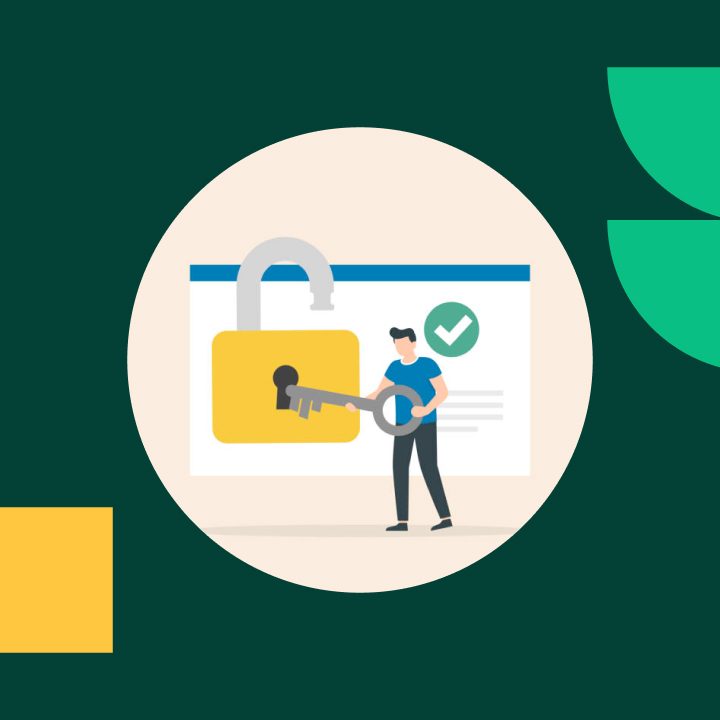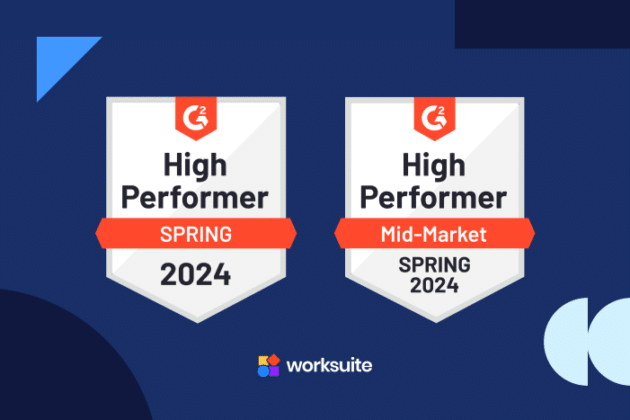
How To Protect Your Intellectual Property When You Hire Global Freelancers


If you’re working with a global freelancer talent pool, you may not have weighed up the risks for your organization’s intellectual property assets.
Protecting your company’s private data, files, and other sensitive information is paramount when you’re hiring contractors.
You need to ensure the data you share with people who aren’t your employees is kept safe and confidential. This is even more important when you work with overseas freelancers.
In this article, we’ll be covering the key steps you can take to protect your organization’s IP when you collaborate with freelancers, consultants, and contractors in other countries.
Protecting your intellectual property when working with overseas freelancers
The traditional employer-employee structure protects companies from most of the risks associated with employees who might attempt to commit IP theft. But working with freelancers changes these dynamics.
If you’re growing a global freelancer network, you’re exposed to vulnerabilities every time you make a new hire and assign new projects. Your systems and processes need to be set up to ensure you’re not exposing yourself to any unnecessary IP risks.
Intellectual property includes anything original that your company creates. This can include documents, images, inventions, templates, digital assets, your brand logo, and so on. You may simply have these IP assets stored in your company database, or you might have taken steps to patent, copyright, or trademark them.
Whatever your specific IP scenario is, you should take the necessary steps to ensure everything remains exclusive to your company.
Does your organization need to worry about protecting its IP when working with overseas freelancers?
Every organization needs to protect its IP against theft or misuse. Even if you don’t think your company has much intellectual property to worry about – that’s probably not the case.
Your brand and brand assets are prime examples of IP that you wouldn’t want being stolen and used overseas.
If your business falls into higher risk categories, you need to pay extra attention to ensuring your IP is safe.
These include industries like:
- Startups – If you’re a startup company looking to get acquired, find funding or investors, or you’re getting ready for an IPO – protecting your brand assets and inventions are critical. The last thing you need before taking a big growth step in your company is to get tangled up in IP issues with your contractors.
- SaaS/Tech – Intellectual property rights can get tricky when it comes to tech and software companies. If you’re working with overseas engineers, developers, coders, product managers, and other freelance talent, you need to be vigilant about the regulations in your country (and overseas) relating to the different types of technical IP and product creation.
- Finance – This is a heavily regulated industry, so you need to ensure you’re fully protected for all types and levels of IP in your business.
- Manufacturers – Industrial espionage is a real threat in the manufacturing industry. You need to protect your IP as much as you need to protect and patent your physical inventions.
When you’re working with independent contractors overseas, your IP needs to be taken very seriously if you’re in any of the above industries.
Every time you hire a new freelancer, it’s essential you have a standardized onboarding process that ensures your IP is legally protected.
The dangers of not protecting your IP when working with global freelancers
When you hire overseas freelancers for a project, your organization needs to share certain things with them to help them get their job done to a high standard.
These could be things like:
- Server, CMS, or CRM access
- Company files
- Company accounts
- Email database
- Brand assets
- Partner, client, or customer data
- Trade secrets
- Ideas in development
By giving your global freelancers access to your company IP, you open yourself up to the possibility of data breaches.
Whether you’re hiring a freelance VA, copywriter, developer, designer, or CMO, it’s important that your brand assets, original work, and inventions are kept safe from any potential misuse, loss, leaks, or theft.
IP laws vary in every country – so the laws you use to govern your IP in your own country may not be applicable to the countries your freelancers live in. This means your company’s intellectual property won’t be protected from IP misuse overseas.
If an overseas freelancer steals or leaks your IP, this could wreak havoc for your company:
- You could lose current and future customers, clients, and partners who viewed you as a secure and trustworthy company to do business with.
- You could fail regulatory or IPO audits and inspections
- Your reputation could be irreparably damaged, especially if your IP dispute case ends up in the media
- You could end up in a lengthy and costly legal dispute with a foreign court system to keep the IP that is rightfully yours.
If your company hires freelancers abroad, and you’re unsure whether your IP is secure in these circumstances, it’s best to seek professional guidance from an attorney who understands international IP regulations.
Get professional legal advice from an IP attorney
An IP attorney will help your organization understand where there are gaps in your intellectual property protection when you’re working with global freelancers.
They will assist you to draft a strong contract, NDAs, and confidentiality agreements, and also help you copyright, trademark, and patent anything that requires a high level of protection from theft and misuse.
You may also need to register these legal proceedings in every country that your freelancers work from – depending on the specific IP laws of those countries.
Get your freelancers to sign non-disclosure (NDA) agreements
A non-disclosure agreement (NDA) is one of the primary ways your organization can protect its IP when you hire overseal freelancers.
An NDA is a legally binding contract between your company and any freelancer you hire. It sets out clearly the company information that can be shared, and the information that is strictly confidential between you and your contractor.
Your NDAs should be signed by all parties before any work begins, and before you send any IP material to your freelancer.
Most freelancers are more than happy to sign NDAs, as they’re a common part of the contract hiring process – but if you come across a freelancer who is particularly reluctant to sign, this could be a red flag.
NDAs provide benefits to both you and your freelancers, so a contractor who doesn’t want to sign one may be problematic for your organization. You could be putting yourself at risk if you decide to go ahead and hire without it.
While NDAs can’t guarantee your freelancer won’t share the information with a third party person (such as a friend or spouse), they do place a legal obligation on your freelancer – and you can sue them for damages if they seriously breach this contract.
Create a legally binding contract that includes an IP clause
In addition to your NDA, it’s important that you and your freelancers sign a contract before any work begins. This should set out the terms of their employment, and the specific work they will undertake.
When you’re working with global freelancers, it’s a good idea to include a specific IP clause in this contract.
IP rights can default to the creators of work in many countries if there is no specific contract signed to the contrary, which means if there is an IP dispute at any point, you will lose the right to the work that your freelancer created on your behalf.
Having a specific IP clause means you can define the rights of any work created by your overseas freelancer, and who the rights are transferred to upon project completion and payment.
A “non compete” clause can be added to your contract for extra protection. This ensures that your freelancer can’t compete with your organization, or work for your competitors, for a defined period of time.
You could also add a clause that your freelancers must either destroy, delete, or return any materials that you have shared with them during the course of your work together. This means they can’t legally keep this material to use for themselves in the future.
Patent any company inventions
If you’ve hired a freelancer from overseas to invent something for you (e.g. a piece of software or a physical invention), you need to obtain patent rights to prevent them from personally using or replicating this invention.
In many countries, the creator of any invention is presumed to be the legal owner. This means you need to mutually sign an agreement which assigns the freelancer’s interests/ownership rights in the invention over to your company. The agreement should be signed by both parties before any work begins.
An IP attorney can help you draft an assignment agreement that’s tailored to your specific needs. Don’t rely on a freelancer’s good intentions to simply hand over their invention to you when the work is done, as this can put your company at potential risk.
Protect your work under copyright law
If you hire an overseas freelancer to create any type of original work for you, you need to ensure in your contract that this work is created “for hire”.
This means the ownership and control of any work undertaken by your freelancer is transferred to you as the commissioner of the work.
This original work can apply to creations such as:
- Blogs
- Videos
- Books
- Artwork
- Sound recordings
- Songs
- Translated texts
- Websites
If your company is based in the USA, you’re automatically protected by US copyright law when you hire a freelancer to create original work. This is because the copyright law protects the company who commissions and pays the freelancer – but in overseas countries, this copyright law may not apply.
Categorize your freelancer projects by risk level
To further protect your IP, you can categorize the types of projects you hire overseas freelancers for by their various risk levels.
Much of your IP is already available to the public, for example – the copy, design, and brand assets on your website. But other elements of your IP may be highly confidential to specific people in your organization.
When you work with a global freelance talent pool, you’ll need to decide which types of assets you’ll be sharing with certain freelancers. You might even need to seek advice from an attorney to create specific contracts and NDAs to protect high-risk IP material that you need to share for certain projects.
Categorizing these levels of risk for your organization can help you assess each project, and define the steps you need to take to protect yourself before you start the hiring process.
Protect your company files
You’ll need to decide what you share with your global freelancers for their assignments – and how you share that data. Even sharing simple documents can present an IP risk for your company.
When you’re collaborating with a global talent pool, you can mitigate some of these file sharing risks in the following ways:
- Be careful about the types of files you share. For example, PDFs can be password protected, and those permissions can be revoked by you at any time
- Ensure you’re the document owner when you share files (e.g. with Google documents or slides) – this will enable you to revoke access if you need to.
- Redact any sensitive information in documents
- Share information via apps like Box.com and Dropbox.com which have built-in feature sets to record logs, set permissions, and revoke access after a certain time period
- Only share data your freelancers absolutely need to do the jobs you’re hiring them to work on
All of these steps can prevent your freelancers from copying files and company information to their personal drives, and it ensures you retain ownership of your IP assets.
Screen your freelancers
Before you hire a new freelancer, you should screen them to mitigate any potential risks. This could include steps such as:
- Getting a background check
- Asking for references
- Checking their LinkedIn profile
- Checking their portfolio of previous work
- Looking for other profiles online
- Checking for published work online
Trust is an essential part of your relationship with freelancers, and if you can find good ones that you can form consistent, long-term relationships with, this will go a long way towards protecting your IP.
If your organization is constantly replacing freelancers (or you’re expanding and hiring rapidly), this puts you at a greater risk.
How Worksuite helps protect your IP when you work with global freelancers
The Worksuite platform helps lessen your risk when you work with freelancers overseas.
We work with leading legal partners in 150+ countries to create contracts that comply with local laws and protect both you and your overseas contractors.
Contracts can then be created, sent, and digitally signed within the platform, ensuring your freelancers are onboarded quickly and compliantly.
Worksuite also offers flexible solutions that help you with:
- Screening new contractors
- Running background checks
- Confirming and verifying freelancer IDs
- Running KYC checks
- Collecting tax information
- Collecting bank details
Most importantly, Worksuite offers global IP protection for your company, with intellectual property agreements tailored specifically for your organization – ensuring your intellectual property is secure whenever you work with overseas freelancers.






